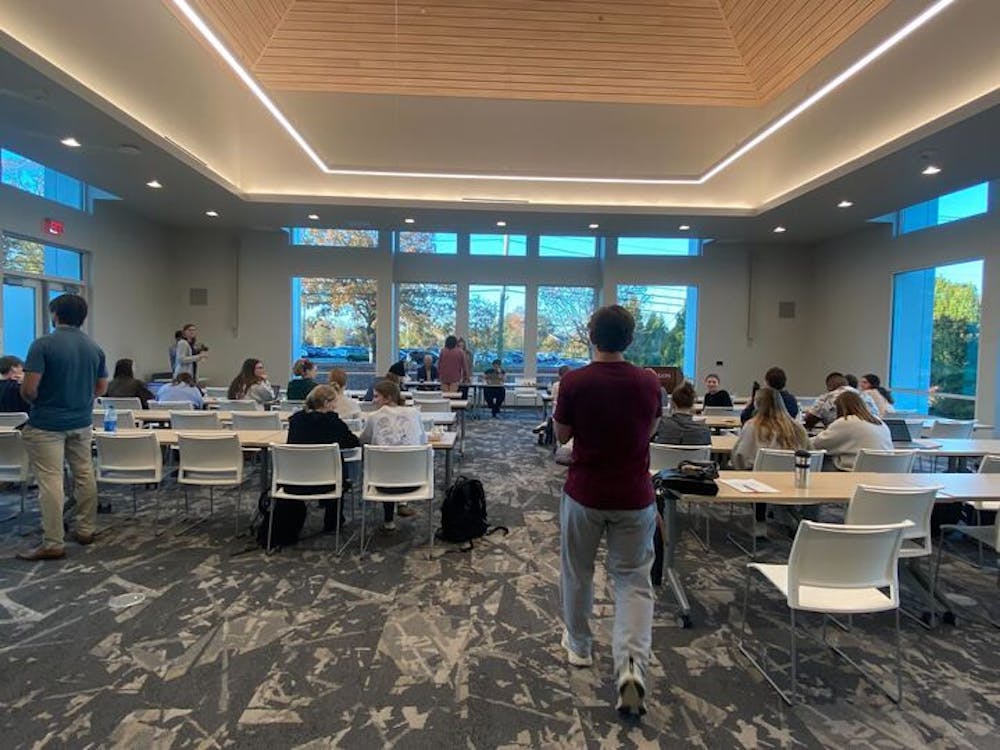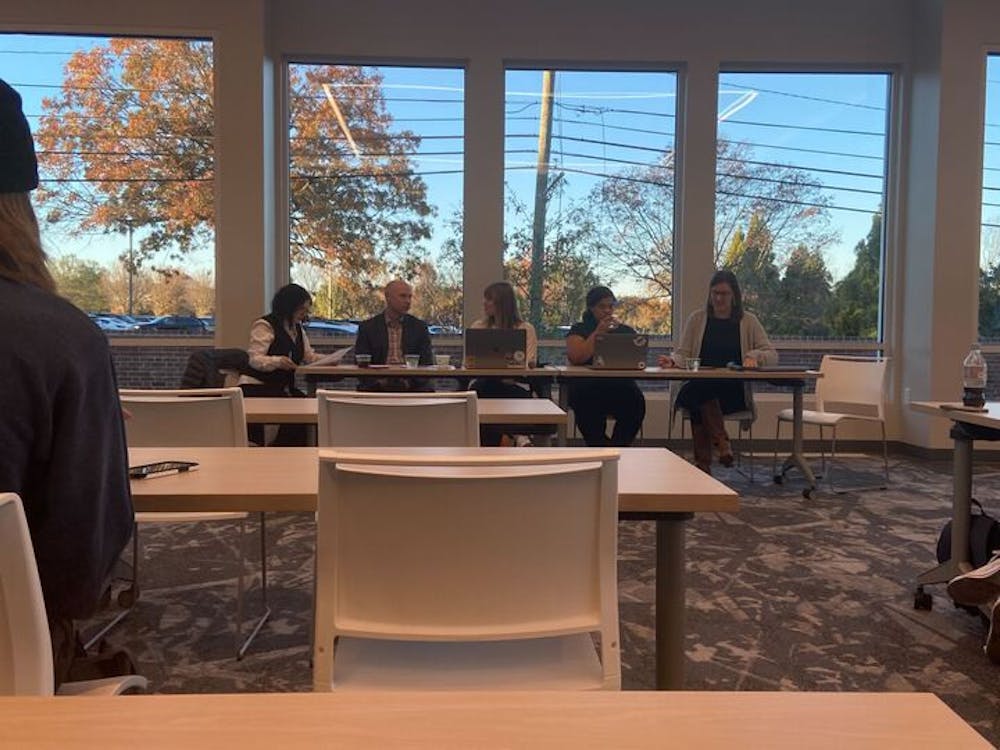On Tuesday, Nov. 12, the Elon University Department of Political Science hosted a panel of political science professors in East Neighborhood Commons to discuss the results of the recent election.
The event was part of the Active Citizen Series, which held multiple forums and panels in the lead up to the national election about different issues within politics. This event is the last scheduled Active Citizen Series event for the semester, but there is another post-election discussion being held in Lakeside Meeting Room 212-214 on Nov. 14 at 4:30 p.m.
The panel addressed the recent election and broke the discussion into three segments: what happened and how to make sense of it, what to expect from the incoming Trump administration and a question and answer forum from audience members. There were roughly 40 audience members in attendance but many left before the end of the event at 5:45 p.m.
Members of the panel included professors of political science and public policy Safia Swimelar, Jessica Carew and Dillon Bono-Lunn, as well as Director of Elon University Poll Jason Husser. Political science professor Carrie Eaves moderated the panel. Questions were pre-written by select students.

While speaking during the first section of the panel, each professor agreed the economy and voters' perception of the economy was one of the biggest boons for the Trump campaign. Professors also acknowledged the lack of a Democratic primary after President Biden stepped down in late July may have hurt the Harris campaign's efforts to establish a strong coalition.
The panel also touched on the widespread trend of vote splitting throughout the country. Vote splitting is when voters will vote for a Democratic candidate for some positions in office, but then vote for Republican candidates for other positions. This can be seen in North Carolina, which saw voters swinging rightward for the presidency, allowing Trump to win the 16 electoral votes North Carolina offered. However, for the gubernatorial race, voters elected Democrat Josh Stein.
The next section the panel moved onto was what the next Trump administration would look like from a domestic and foreign policy standpoint. During his campaign, Trump pushed anti-immigration rhetoric and policies, including his promise for mass deportations on day one.
The last section for questions and answers did not have many participants.
After the event, senior Bo Dalrymple told Elon News Network he is still trying to make sense of the election but his involvement with Elon Votes encouraged him to come to events such as this throughout the year. He said professors on the panel are able to better break down what the results of the election are rather than soundbites from the media.
“I think a lot of these answers were really helpful in shaping our thinking. We get a lot of soundbites on the internet or headlines and that's our whole story,” Dalyrmple said. “The professors are able to break it down in terms of their interests and expertise.”
Senior Hunter Siegel said events like this help students on campus grow their knowledge in different areas and become an informed electorate.
“I can really see that events like this build our competence and world knowledge,” Siegel said. “I think that is important to bring it back to politics for an informed electorate and critical thinking.”
As students across campus deal with and understand the results of the election, Carew said she hopes students understand:
“Elections are the beginning point not the end point.”


